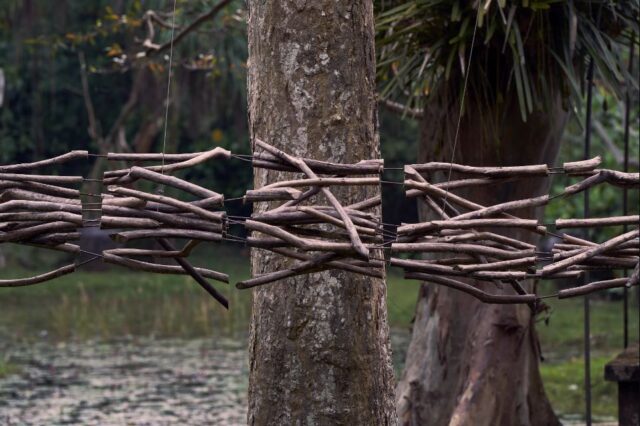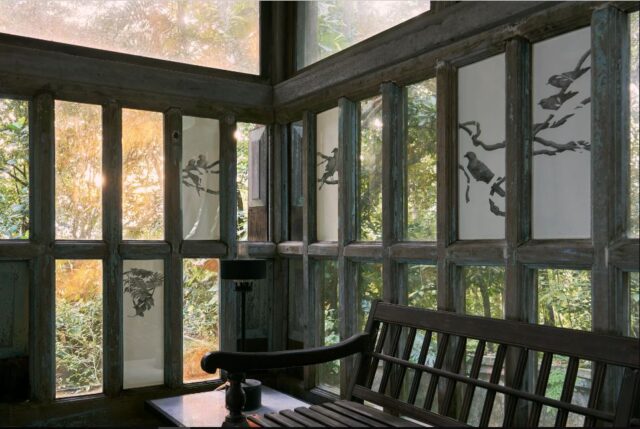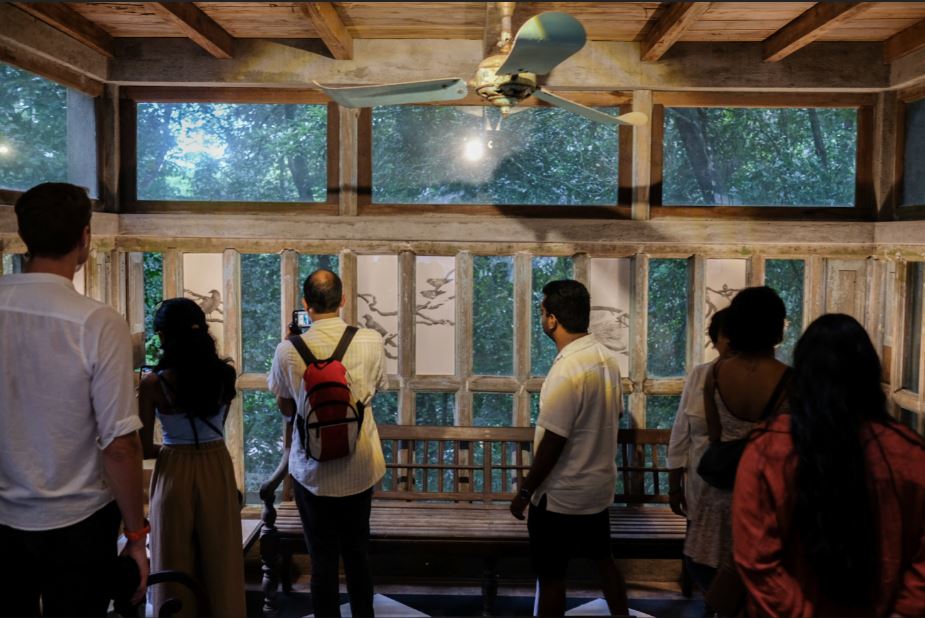
In the long-standing tradition of artists using Lunuganga as a source of inspiration and site-specific location for their work, local artist Firi Rahman has spent the last several months engaging with the garden through a two-part installation.
Consisting of indoor and outdoor components—entitled In between: the Existence of Firdaus and Perch, respectively—the installation considers the fragile relationship between humankind and nature against the backdrop of Lunuganga’s distinct topography. When conceptualising the work, Rahman sought to “create something that actually blends with nature and complements these other artists’ work and Bawa’s garden.”
This installation marks two firsts for Rahman: a site-specific piece and one containing an outdoor element. Rahman built upon the themes and motifs of his previous work, which explores the interplay between humans and nature. Drawings of birds seen in the garden hang in the Sandella and accompany an assembled timber sculpture in the Field of Jars, titled Perch.
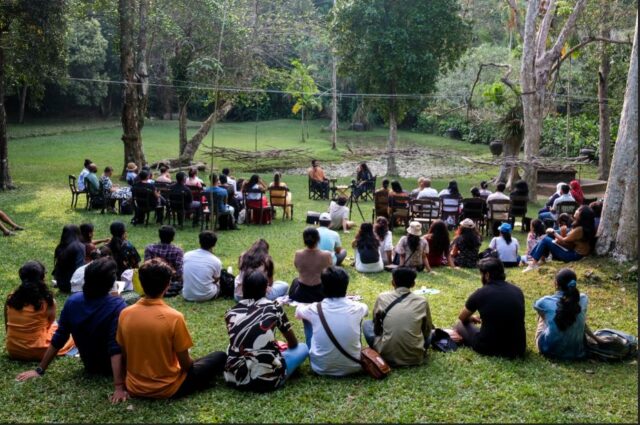
Rahman’s installation was a collaborative effort between the artist and the Geoffrey Bawa Trust as part of its year-long To Lunuganga programme to commemorate the garden’s 75th birthday. On working with the Trust, Rahman spoke of the “many things I could connect to,” including the “aligned” interests in “archiving, ecology, so many things that connect with my work.”
In between: the Existence of Firdaus is one of the latest additions to an established history of artists showcasing their art at Lunuganga, in recent years through the Bawa 100 centenary celebration in 2019 and the ongoing To Lunuganga programme. Acknowledging the lineage he joined by exhibiting his work at the garden, Rahman said, “It was a milestone for me, I would say, to do something there.”
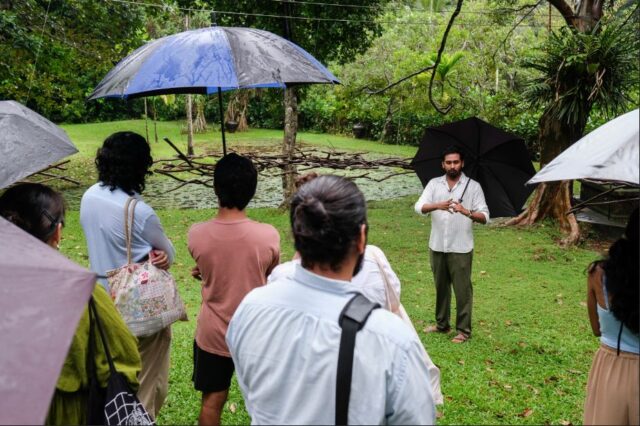
On Saturday, 10th February 2024, artist Firi Rahman and the Geoffrey Bawa Trust gathered visitors to Lunuganga for the launch. Participants began arriving at Lunuganga around mid-afternoon for the first half of the programme, a sketch workshop led by the artist. Having sought to create a piece that is a “more publicly engaging work,” Rahman first spoke about his own methods and techniques. He then encouraged participants to wander about the garden on their own with their sketch materials before reconvening in both individual and group settings to share their creations.
The second half of the afternoon featured a conversation between Rahman and Geoffrey Bawa Trust Curator Aneesha Mustachi near the outdoor element of his installation, Perch. Together, Rahman and Mustachi further discussed Rahman’s creative process, specifically his foray into three-dimensional works after working primarily in two-dimensional formats. Rahman shared his thoughts on the “challenging” nature of conceptualising and executing a three-dimensional piece for both himself and his peers, saying, “We don’t have the space, the opportunity, the funding to do this.” Perch is specifically designed to evolve alongside the landscape, and will continue to respond to its environment throughout its time on view at Lunuganga.
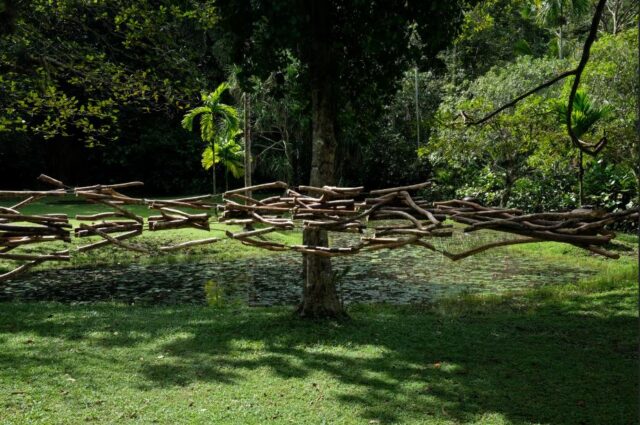
Rahman expressed his gratitude for the “beautiful collaboration” that took place between himself and the curatorial team over the past year, from the “trust the team had with me” to the gardeners at Lunuganga, which was ultimately “a dream project” for the artist.
In between: the Existence of Firdaus is open to the public as part of the To Lunuganga programme celebrating 75 years of art, architecture, and ecology at Lunuganga. More information about Rahman’s installation may be found at: lunuganga.garden/In-between-the-Existence-of-Firdaus-by-Firi-Rahman
